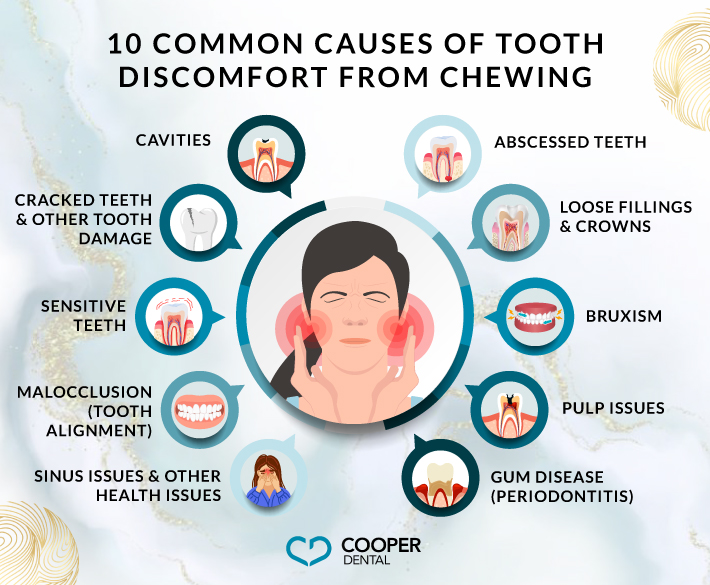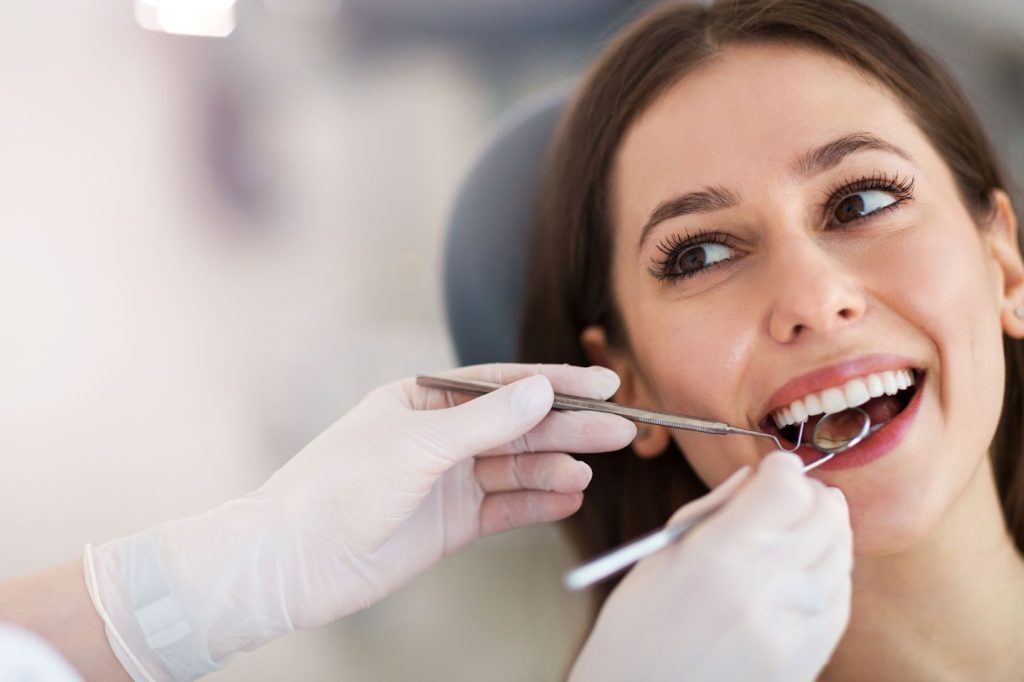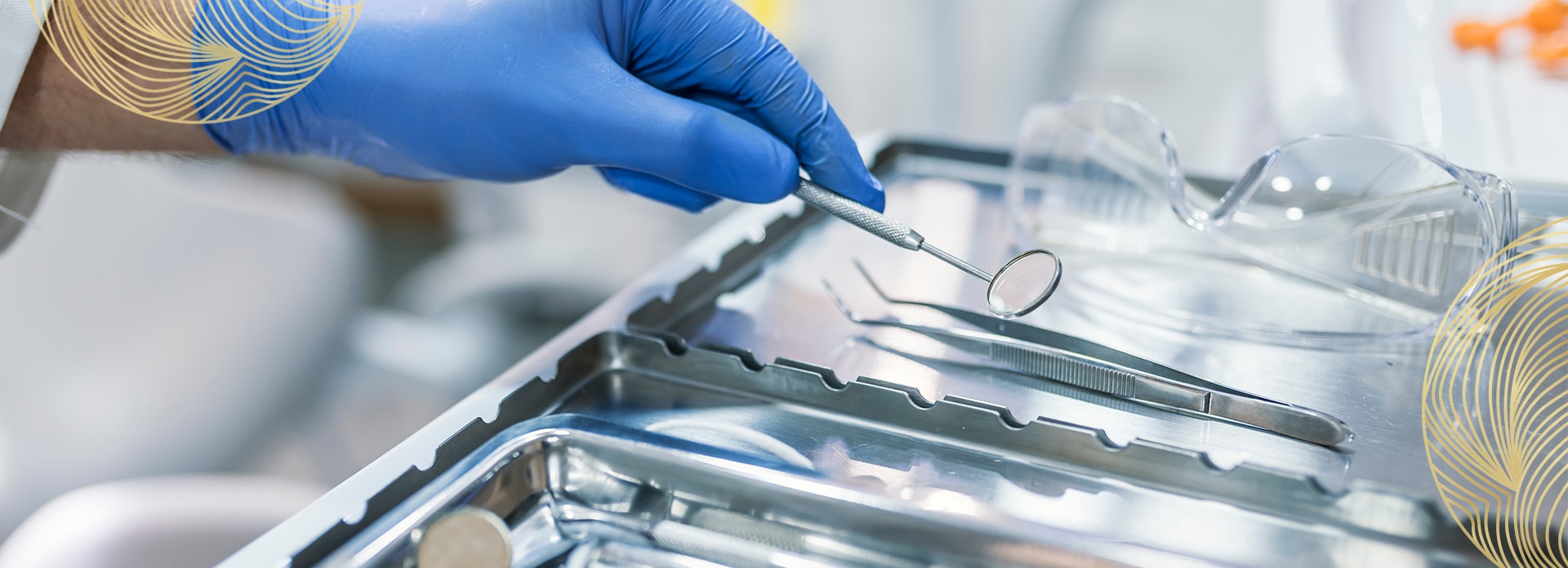You should never ignore pain in your teeth—especially if it is persistent or it happens every time you chew. There are a lot of different reasons why your teeth might hurt when you chew, and getting a dental exam can be vital for avoiding more serious problems in the future.
Here are 10 common reasons why your teeth might hurt when you chew:
- Cavities
- Cracked teeth and other tooth damage
- Sensitive teeth due to dentin or root exposure
- Sinus issues and other health issues
- Malocclusion (tooth alignment)
- Abscessed teeth
- Loose fillings and crowns
- Bruxism (teeth grinding)
- Pulp issues
- Gum disease (periodontitis)
Without a thorough dental exam, it can be difficult to know the exact reason why your teeth are in pain and whether or not you may need other forms of dental care, such as fillings for cavities or emergency dental care for injuries.
Cavities
Both kids and adults can be affected by cavities—and they are a common cause of discomfort. Cavities can get worse over time, so they should never be ignored.
When cavities affect kids, they are often caused by a buildup of dental plaque. Those kinds of cavities can affect adults too, but some adults also get cavities from bacteria and plaque buildup around fillings or exposed tooth roots, which lack the protective enamel layer that covers the rest of your tooth.
The treatment for cavities can vary depending on how far they have progressed, but in many cases, fillings are the first course of action.
Cracked Teeth & Other Tooth Damage
Pain that only appears when you bite down can be a sign of a cracked tooth or other tooth damage caused by an injury. A crack can expose the sensitive dentin and nerves inside your tooth, leading to increased pain when chewing.
In addition to discomfort caused by eating and drinking, you may also experience a sensation like something is stuck between your teeth when you have a cracked tooth. Some people do not experience any symptoms—which is one reason why regular dental exams are so important.
The treatment for a cracked or broken tooth can vary based on how severe the damage is. In some cases, a filling may suffice for a cracked tooth. If the crack is extensive, a crown and potentially a root canal may be required. In the most extreme scenario, the crack is so extensive that the tooth cannot be saved and will need extraction.
Sensitive Teeth
Toothaches and discomfort that you feel when eating can also be caused by sensitive teeth—which can have several other underlying causes. Gum recession creates root exposure which can be a major cause of sensitive teeth.
The treatment we recommend for tooth sensitivity depends on the cause. You may only need to start using toothpaste created for sensitive teeth, or we can place a varnish on the root surface to decrease sensitivity. In some situations, fillings may be used to cover a sensitive area.
Sinus Issues & Other Health Issues
Because the upper roots of your teeth are located close to your sinuses, issues that affect your sinuses, such as congestion or an infection, could also cause tooth pain.
Your overall health and oral health are closely connected, and sinus issues are far from the only health issues that can cause tooth pain. When you visit us for a dental exam, we can help you narrow down the list of potential causes and guide you toward relief.
Malocclusion (Tooth Alignment)
Malocclusion is a problem with your bite that can cause crooked teeth. Misaligned teeth can lead to tooth pain when you bite or chew if your bite puts extra pressure on a specific tooth in the wrong angle.
Malocclusion can also increase your risk of experiencing tooth decay by making it harder to clean your teeth. Issues related to tooth alignment can often be addressed with orthodontic treatments, such as Invisalign.

Abscessed Teeth
An abscessed tooth is an infection that can cause severe discomfort. In addition to discomfort when you eat or chew, an abscessed tooth can cause:
- Redness and swelling in your gums
- A bad taste in your mouth
- Swelling in your jaw or face
- Soreness in your teeth that gets worse when you touch them
- A red, swollen bump in your mouth
- A fever
If an abscessed tooth is not treated promptly, it could get worse and lead to other complications. You should schedule a dental exam if you believe you have an abscessed tooth or seek out emergency dental care if you are experiencing severe symptoms.
Loose Fillings & Crowns
Discomfort from chewing could also be a sign of loose crowns and fillings. Crowns and fillings are meant to last, but there are some situations that could cause them to come loose, including:
- Frequent tooth grinding
- Tooth decay under a crown or filling
- Eating sticky foods that pull a crown or a filling out of place
- Cement washing out due to bacteria getting inside the crown
- Cracks or damage in a crown or filling’s foundation
An injury could cause enough damage to knock out a crown, or the problem of a loosening crown could develop slowly over time. You should visit your dentist soon if you notice that your crown or filling has become loose or been knocked out.
Bruxism (Teeth Grinding)
Bruxism refers to unconscious teeth grinding—often done while you are asleep—that can slowly damage your teeth and cause toothaches. Teeth grinding can also cause soreness in your jaw and contribute to the development of temporomandibular joint disorder, which can cause discomfort while you chew.
Bruxism is often stress-related, but it can also be caused by other issues that affect your mouth, such as tooth misalignment. The treatment we recommend for bruxism can vary based on the cause, but in some cases, we may recommend a night guard to help protect teeth while you sleep or braces to help improve tooth alignment.
Pulp Issues
Your pulp is the central part of your tooth that contains nerves and blood vessels. Pulp inflammation (pulpitis) can cause discomfort when you eat because of increased sensitivity to sweet, hot, and cold food. Other issues that affect your pulp, such as an infection, could also cause significant discomfort.
Gum Disease (Periodontitis)
Gum disease occurs in 2 stages: gingivitis, the early stage, and periodontitis, the later stage. When gum disease goes untreated and becomes periodontitis, it can spread to nearby parts of your gums and jaw, making chewing uncomfortable since the root is exposed and the tooth may also be getting loose.
Regular brushing and flossing are some of the best ways to prevent gum disease, but it is also important to get routine dental exams—so we can help treat gum disease during its early stages.

Get to the Root Cause of Your Tooth Pain
We know how challenging life can be when chewing hurts—and we want to help you smile again. At Cooper Dental, we provide personalized dental experiences based on your needs, symptoms, and lifestyle. Let’s find out what could be causing your discomfort when you chew.
Book an appointment today to get full support for your family’s oral health.




